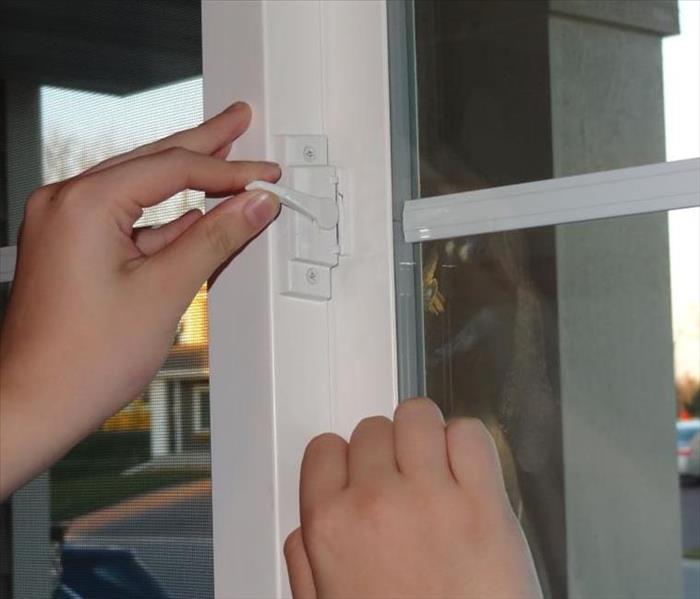Helpful Tips to Cut Your Home Heating Bills
1/7/2016 (Permalink)
 Resource: http://www.popularmechanics.com/home/how-to/g737/9-sneaky-ways-to-cut-your-home-heating-bills/
Resource: http://www.popularmechanics.com/home/how-to/g737/9-sneaky-ways-to-cut-your-home-heating-bills/
Even in the middle of winter, you can slash your energy bills without sacrificing comfort.
Winter is officially here and the temperatures reflect that. It’s difficult not to notice the impact decreasing temperatures have on our home heating bills. Popular Mechanics’ Brett Martin has a few helpful tips for around the house that can reduce how much you need to spend to keep your home warm and toasty.
Replace Worn Weatherstripping
• Worn and torn weatherstripping around doors and windows creates drafts and lets in cold air. Seven to 12 percent of a home's heat loss occurs around windows and doors, according to Black Hills Energy, and these leaks often prompt homeowners to turn up their furnace to keep comfy. Even if they don't turn it up, they're losing warm air, causing the furnace to work harder. "Weatherstripping around doors, and caulking around doors and windows, can cut down on drafts," says Jeff Rogers, president of the Energy Audit Institute, an energy audit training and certification company in Springfield, N.J.
• Some weatherstripping needs to be replaced every few years because of wear. Replacing it is typically as simple as pulling off the old and tacking on the new.
Adjust Door Thresholds
• If you can see daylight under your front door, then you're losing the indoor air you've paid to heat. "If the door is not in contact with the threshold, the air is going right under the door," Rogers said.
• Some thresholds have four or five screws that let you adjust the height to eliminate a gap. Turn the screws counterclockwise to lift the threshold until daylight is mostly gone. A little light in the corners is okay, but don't raise the threshold so high that it interferes with opening and closing the door. And the door shouldn't drag on the threshold or it'll wear out the weatherstripping.
Plug Holes in Exterior Walls
• Pipes, gas lines, and electrical cables that enter your house often have gaps around them that have been haphazardly filled with some kind of caulk. But that caulk eventually cracks, peels, and falls off. These gaps let in outside air, plus they are ideal entry points for mice and insects.
• Seal the gaps with expanding foam. For water pipes under the sink, unscrew and pull back the escutcheon ring, then caulk around the pipe.
Cover Windows and Patio Doors with Plastic Film
• Rogers says that windows account for 25 percent of heat loss in homes. Covering the windows and sliding patio doors with clear plastic film can reduce that loss. "Just by using that plastic, you're going to save about 14 percent on your heating bill," he says.
Keep Warm Air from Escaping Up the Chimney
• Even when the chimney flue is closed, some warm air is probably still getting away. An easy solution is to block the airflow with an inflatable chimney balloon. The balloons are available on amazon.com and other retailers to fit various chimney sizes. They cost about $50. "They can save you up to $100 a year, so they're going to pay for themselves twice a year," Rogers says. "They are definitely a good investment."
• Blow up the balloon and stick it in the chimney. If you forget to take it out before you start a fire, the balloon automatically deflates, so it won't cause the house to fill with smoke. However, be advised that the balloons can become sooty and hard to manage after repeated uses.
Seal Air Leaks in Ductwork
• Take a look at the ductwork that's accessible in your basement or attic. Look for places where the ducts may have pulled apart at seams and corners. According to Energy Star, the typical house with forced-air heating loses about 20 to 30 percent of the air that moves through the system to leaks, holes, and poorly connected ducts. Place a mastic sealant or metal tape over any leaks to seal them.
Use the Sun To Your Advantage
• Keep your curtains open during the day, especially on the south side of the house where you get more direct sunlight. Trim any tree branches or shrubs that block the sunlight around your windows to maximize the gains. Close the curtains at night so they act as barriers to reduce drafts.
Keep Heating Registers Clear
• The warm air blowing out of your registers needs a clear path into the room to provide even heating. To cut heating costs, arrange your room so that the register is as unobstructed as possible.
Lock Door and Windows
• Even when doors and windows are closed, they might not be pressed tight against the weatherstripping if they're not locked, which allows cold outside air to infiltrate the home. This makes a difference for your heating bill. Lock your windows early, especially if you live up north. If they freeze in their current positions, then they won't move and you won't be able to lock them without a lot of work.
To view the complete list of tips and tricks to reduce your heating bill, visit Popular Mechanics.





 24/7 Emergency Service
24/7 Emergency Service